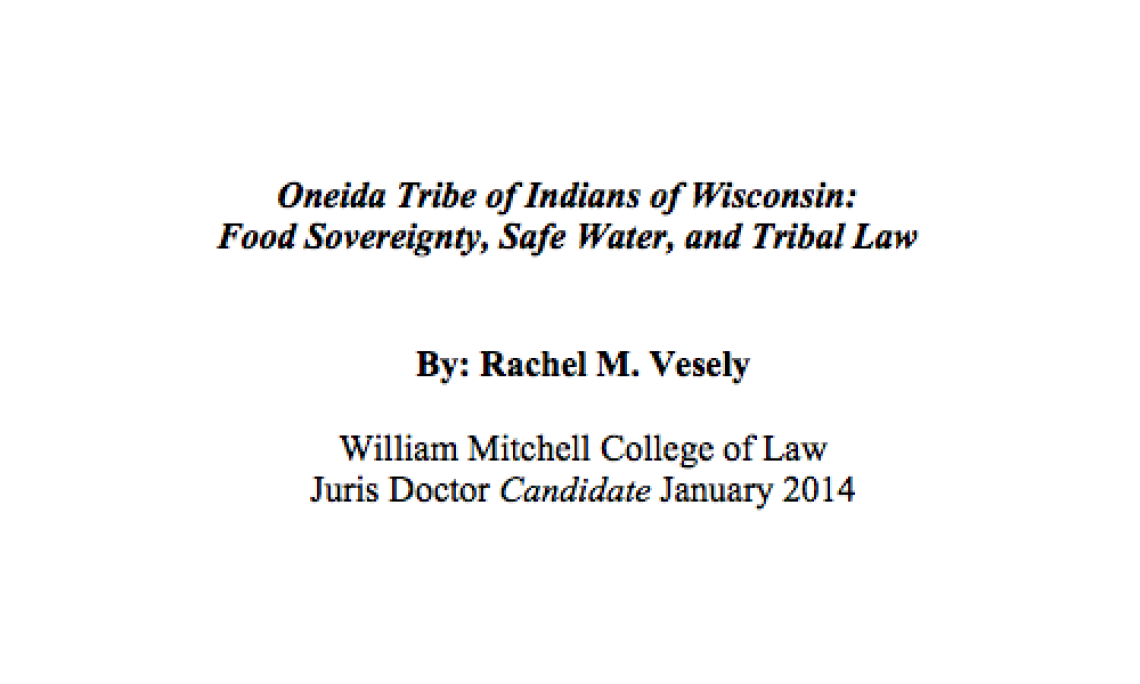An example of a Native American community working to achieve food sovereignty not only with physical nutrients but also with social elements is the Oneida Tribe of Indians of Wisconsin. This article analyzes the strengths of the Oneida Tribe's approach to preserving water quality and fishing habitats.
Tribal governments face a variety of challenges in developing programs to protect access to healthy food and clean water. However, the Oneida Tribe’s struggles and successes will aid other tribes in creating their own culturally-relevant tribal scheme to improve their food security.
The Oneida people have used tribal ordinances to protect their food supply and drinking water. Tribal ordinances are a straightforward approach because they can be implemented by a tribe’s authority and do not rely on federal or state approval. Other approaches such as creating a tribal regulatory agency are possible, but more complex to implement...
Additional Information
Vesely, Rachel M. "Oneida Tribe of Indians of Wisconsin: Food Sovereignty, Safe Water, and Tribal Law." William Mitchell College of Law. Saint Paul, Minnesota. January 2014. Paper. (http://www.northeastern.edu/law/pdfs/academics/phrge-vesely.pdf, accessed January 24, 2014)

